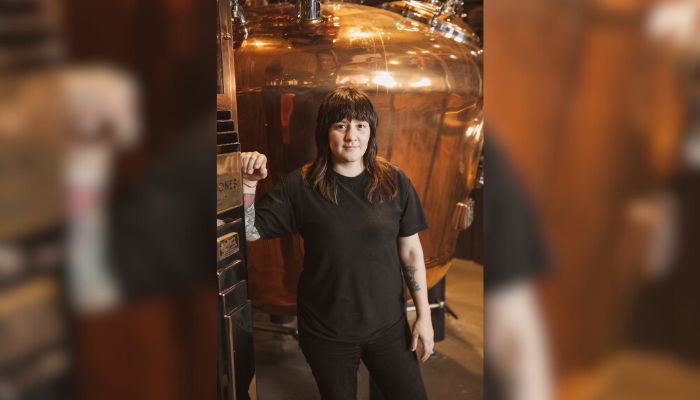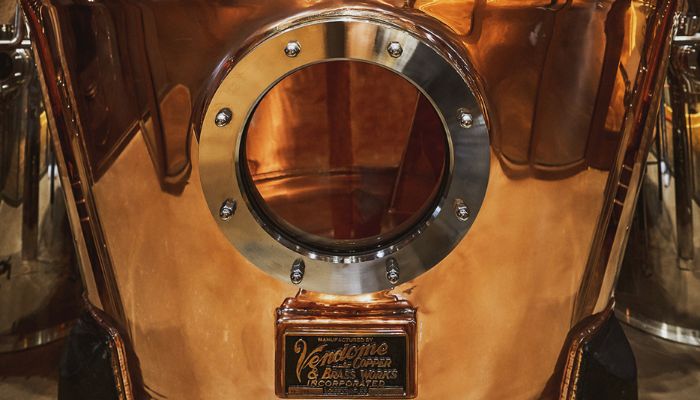Submission Deadline
28 February 2026
Judging
Date
24 & 25 March 2026
Winners Announcement
22 April 2026
28 February 2026
24 & 25 March 2026
22 April 2026

Meet Celina Perez, the dynamic energy behind Great Jones Distilling Co.'s award-winning spirits. With over a decade of industry expertise, Celina's journey to becoming Head Distiller is as distinctive as the tastes she creates. It all started over 11 years ago when she was 29 years old and swapped in her bartender's apron for a job as a cheesemonger on New York City's busy streets.
In this exclusive conversation, we learn about Celina's career, her approach to distillation, and her vision for the future of the business. Join us as we uncover the secrets behind Great Jones Distilling Co.'s unique flavors and learn why Celina Perez is a name to watch in the artisan spirits industry. Check out the whole interview below to discover more about Celina's remarkable narrative and ingenious distillation method.
I began my distilling journey over 11 years ago when I was 29. I had been working as a bartender in New York City for a decade, and then I transitioned to a career as a cheesemonger. It was cheese, strangely enough, that brought me back to the spirits world. I wasn't making much money at the time, but I had access to an endless supply of amazing cheeses, cured meats, and caviar. The only thing missing to complete my feast was bread. So I started baking bread, and then I started brewing beer, and then I started making whiskey. These three processes, all of which require grain, water, temperature, and yeast, are interconnected and serve as educational stepping stones to where I am today. When I applied for a job at a distillery, instead of bringing a resume, I brought a mason jar of whiskey that I had made. They hired me on the spot.
As the Head Distiller at Great Jones Distilling Co., my days are always dynamic and diverse. I oversee a team of distillers in daily production, ensuring smooth operations, and consistent quality. I also spearhead new product development, which involves sampling and ordering grains, crafting detailed recipes for mashing, fermenting, and distilling, and meticulously evaluating the results. Maintaining our equipment is another crucial aspect of my role, encompassing troubleshooting technical issues, replacing parts, and managing contractors and maintenance contracts. Additionally, I work on engineering proposals, budget planning, and internal paperwork. Beyond the distillery, I travel to meet with maltsters, farmers, and fellow distillers, fostering valuable connections within the industry. I also actively participate in events, delivering talks, and hosting tastings to share our passion for spirits with the community. It's a roller coaster ride, but I wouldn't have it any other way.

Image: Celina Perez
I was inspired to become a distiller by my love of whiskey. I make whiskey for myself and for people like me, people who share my passion for this complex and flavorful spirit.
The most important skills for a distiller are to be intelligent, strong, and have a good palate. They must understand the science of distillation, be able to lift heavy objects and operate dangerous machinery. And of course, you have to be able to taste your damn whiskey and tell if it's good or not.
That, I would not know. I am my own worst critic. Just be yourself. When in doubt drink 'em under the table.
A good distiller is someone who has a passion for whiskey and a deep understanding of the distillation process. They can use their knowledge and skills to create spirits that are both delicious and unique. A good distiller also has a good palate and a keen sense of smell. They can identify and describe different flavors and aromas, and they use this skill to create spirits that are balanced and complex. Finally, a good distiller is a craftsman. They take pride in their work and they are committed to producing the highest quality spirits possible. They are constantly experimenting and innovating, and they are always looking for new ways to improve their craft.

Image: Great Jones Distilling Co. (Credits: Celina Perez)
The hardest part of being a distiller is how it takes over your daily life. I am constantly thinking about distilling, how to improve, and how to be the best I can be. My barrels are like my children, and they reflect who I am.
I'm not a salesperson, so I don't have a pitch. If I want someone to like my whiskies they should try it. The proof is in the pudding... or as we like to say in the distilling world "Never look a sausage in the eye"
The spirits industry has reached this creative peak that, I believe, will peter out into a purist movement.
Tasting...or rather confidence in my tasting abilities.
My idea of a good life is to live authentically and unapologetically. I want to pursue my dreams, no matter how unconventional or crazy they may seem. I want to surround myself with people who love and support me, and I want to make a positive impact on the world.
Bourbon is neat in a cold dark movie theater.
Chemical Engineer's Handbook Perry and Chilton and the Code of Federal Regulations Title 27
We do not source bulk spirits.
The blending process can be complex and nuanced and varies depending on the type of spirits being blended.
When I am blending whiskey, I typically look for a mix of "Goldilocks" barrels and outliers. Goldilocks barrels are those that are well-balanced and have the desired flavor profile that will no longer benefit from longer aging. They fit just right. Outliers are barrels that are particularly flavorful or unique.
I will blend the Goldilocks barrels as a base whereas the outliers may be used to add specific flavors or aromas to the blend, or they could be used to create a more limited edition or special release product.
[[relatedPurchasesItems-63]]
I pay an animal feed company to pick it up.
If you had to give a quick elevator pitch on why an account should bring in your product for its consumers, what would it be?
It's delicious. That's the only reason you should drink anything.
Yeast, Grain, Malts, Sanitation, and Temperature Control
I only source grain locally and our waste is converted into animal feed that is distributed locally.
Skies are the limit these days. I anticipate that things will get weirder recipe-wise for a bit...barrel finishing and heirloom grain varietals are everywhere. I think we are seeing a renaissance similar to what happened in the brewing world 20+ years ago. For better or for worse it's gonna get weird and I am here for it.
Show your spirits where it matters. Get your products tasted by top bartenders, buyers and experts at the London Competitions — enter now.